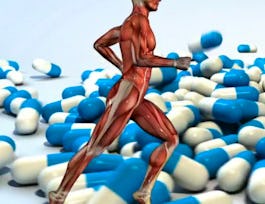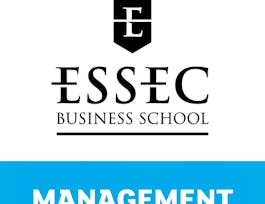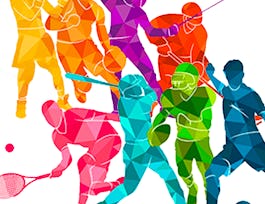The objective of this course is to encourage a critical understanding of doping. To achieve this goal, this course will rely on a multidisciplinary approach that allow you to see how different disciplines get into a single object, in different perspectives and in often complementary ways. This approach will also allow us to appreciate the complexity of a subject like doping.


Doping : Sports, Organizations and Sciences
Taught in English
Some content may not be translated
10,281 already enrolled
(333 reviews)
Details to know

Add to your LinkedIn profile
5 quizzes
See how employees at top companies are mastering in-demand skills


Earn a career certificate
Add this credential to your LinkedIn profile, resume, or CV
Share it on social media and in your performance review

There are 4 modules in this course
The first module explores the identification and the definition of doping. It offers a critical approach inspired by social science methods, so as to understand doping as a social norm that shapes performance producing. We will take a look at definitions of doping throughout history as well as the legal definition that is used today, the one put into place by the World Anti Doping Agency (WADA).
What's included
7 videos10 readings1 quiz
By going beyond a binary vision that opposes those who cheat and those who don’t, Module 2 will help you understand what might lead ordinary individuals into substance-use. The analysis of the process that lead to doping will be approached through the social and psycho-social factors behind doping, as well as the role of culture and of sports organisations will be raised. This module includes an interview with Denis Hauw, sports psychology expert and Associate Professor at the Institute of Sport Studies at the University of Lausanne.
What's included
9 videos3 readings1 quiz
Module 3 will help you understand the role of sports organisations in the fight against doping through two examples: the Union of European Football Associations (UEFA) and the Union Cycliste Internationale (UCI). This module will also explore the role of organisations in charge of fighting against doping, by presenting two major actors: the World Anti-Doping Agency (WADA) and the Court of Arbitration for Sport (CAS) whose activities are also linked to doping. These organisations will be presented through four interviews with: Frédéric Donzé, the director of the European branch of the WADA ; Marc Vouillamoz, Head of UEFA's antidoping unit ; Matthieu Reeb, the Secretary general of the CAS; Olivier Aubel, Senior Lecturer at the Institute of Sport Studies the the University of Lausanne, who will present the new measures put into place by the UCI to prevent doping in cycling.
What's included
6 videos4 readings1 quiz
Module four presents bioanalytical and forensic substance detection and analysis methods. It is made up of 4 interviews carried out with doping experts from the Swiss Laboratory for Doping Analysis (LAD) in Lausanne (Switzerland), that will explain: - how bioanalyses are carried out (Norbert Baume, head scientist at the LAD); - how the biological passport works (Neil Robinson, head scientist at the LAD); - forensic approaches to doping (François Marclay, research scientist at the LAD); - atypical analysis results and the evolution of the future of the fight against doping (Martial Saugy, director of the LAD).
What's included
8 videos4 readings2 quizzes
Instructor

Offered by
Recommended if you're interested in Governance and Society

University of Lausanne

ESSEC Business School

The State University of New York
Why people choose Coursera for their career




Learner reviews
Showing 3 of 333
333 reviews
- 5 stars
69.76%
- 4 stars
21.85%
- 3 stars
5.38%
- 2 stars
1.19%
- 1 star
1.79%

Open new doors with Coursera Plus
Unlimited access to 7,000+ world-class courses, hands-on projects, and job-ready certificate programs - all included in your subscription
Advance your career with an online degree
Earn a degree from world-class universities - 100% online
Join over 3,400 global companies that choose Coursera for Business
Upskill your employees to excel in the digital economy
Frequently asked questions
Access to lectures and assignments depends on your type of enrollment. If you take a course in audit mode, you will be able to see most course materials for free. To access graded assignments and to earn a Certificate, you will need to purchase the Certificate experience, during or after your audit. If you don't see the audit option:
The course may not offer an audit option. You can try a Free Trial instead, or apply for Financial Aid.
The course may offer 'Full Course, No Certificate' instead. This option lets you see all course materials, submit required assessments, and get a final grade. This also means that you will not be able to purchase a Certificate experience.
When you purchase a Certificate you get access to all course materials, including graded assignments. Upon completing the course, your electronic Certificate will be added to your Accomplishments page - from there, you can print your Certificate or add it to your LinkedIn profile. If you only want to read and view the course content, you can audit the course for free.
You will be eligible for a full refund until two weeks after your payment date, or (for courses that have just launched) until two weeks after the first session of the course begins, whichever is later. You cannot receive a refund once you’ve earned a Course Certificate, even if you complete the course within the two-week refund period. See our full refund policy.


